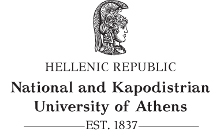Overview
With its 37 members of academic staff, the Department of Political Science and Public Administration creates a unique transdisciplinary academic environment. Teaching and research revolve around four sub-disciplinary fields: Political Analysis, Social Theory and Sociology, Administrative Science and Public Law, and International and European Studies. Subjects from all four fields belong to the compulsory core curriculum for all students, independently of their specialisation in the last two years of the four-year undergraduate course leading to the degree of Political Science and Public Administration. The three specialisations, within which also the degree thesis must be written, are the following: Political Analysis, Administrative Science and Public Law, and International and European Studies. Theory and methodology of the various sub-disciplines make up the main body of teaching. However, concrete references to the real world and to practical issues of politics, as well as to issues of policy formulation, implementation, monitoring and assessment constitute an important part of the lectures. The great majority of the academic teachers have the skills and the inclination for this exercise, as they are often involved in advisory roles in politics, in the civil service and in the private sector. As the publication lists of the staff show this is not done at the expense of the overall research output of the department. Active or retired members of academic staff hold currently the posts of the European Ombudsman (Professor Emeritus Nikiforos Diamantouros), the Vice President of the European Court of Human Rights (Professor Emeritus Christos Rozakis) and the Ombudsman of the Hellenic Republic (Professor Calliope Spanou). Even in the case of their being on leave from their academic duties, many of these members of academic staff continue to deliver lectures or to participate in courses and research programmes.
History
The Department of Political Science and Public Administration at the University of Athens, although founded in 1982, can trace its origins back to the beginnings of the University of Athens in 1837. It evolved out of the Chair of Political Science at the Department of Law (which was one of the first departments of the oldest Balkan university) into an independent academic department. This happened a few years after the Chairs of Political Economy, which were founded in the late 19th century, evolved into the Department of Economics in the 1970s. This reform of the School of Law, which was then renamed the School of Law, Economics and Political Science, transformed it into a higher education institution awarding since the early 1980s, three separate degrees corresponding to the titles of its departments. This change was a genuine expression of the tradition of the School, which was not only the centre of legal studies in Greece, but also the centre of the emergence and cultivation of the economic and social sciences since the middle of the 19th century. The School preserved this role for more than a century, until the 1980s, when social science departments emerged in other newly founded Greek universities. It is within this School that the first chairs of political economy have been created and retained their unique role until the 1920s. It is also within this School that one of the first chairs in sociology was established in the same decade. It is thus no coincidence that internationally renowned social scientists like Cornelius Castoriades or Nicos Poulantzas belong to the alumni. It is also extremely rare to find a democratically elected Prime Minister of Greece in the 20th century who does not hold a degree from the School of Law, Economics and Political Science, as it called now and to which the Department of Political Science and Public Administration belongs.
In the Department, during its operation years, excellent academics have taught and also offered in research and administrative level. Some of them are no longer alive, such as Dimitris G. Christofilopoulos (1941-2023), Theodore A. Couloumbis (1935-2022), George B. Dertilis (1939-2023), Elias Nikolakopoulos (1947-2022), George Papadimitriou (1944-2009) and Arghyrios A. Fatouros (1932-2011).
Postgraduate Courses
The Department of Political Science and Public Administration of the University of Athens offers 3 different postgraduate courses taught in Greek:
- Political Science and Sociology
- Public Law and Public Policy
- International and European Governance and Politics
and one taught in English, leading to Master's Degree in
- Southeast European Studies: Politics, History, Economics
The 25,000 volume library and the computer labs enable the access to all necessary information students need for writing their essays and for doing their research work.
Research
Research is carried out in the following units, all directed by members of academic staff:
- Administrative Sciences Unit
- Institute of Greek Politics
- Institute of European Integration and Policy
- Institute for the Study of Greek-German Relations
- Institute for Migration and Diaspora Studies
- Lab of Political Communication and Information Media
Refereed Journals edited by members of academic staff
- South European Society and Politics (Published by Routledge)
(Co-Editor in Chief: Dr Susannah Verney, University of Athens, Political Science and Public Administration) - Southeast European and Black Sea Studies (Published by Routledge)
(Co-Editor in Chief: Professor Emeritus Thanos Veremis, University of Athens, Political Science and Public Administration) - The Historical Review / La Revue Historique (Published by the National Hellenic Research Foundation, Institute for Neohellenic Research)
(Editor in Chief: Professor Paschalis M. Kitromilides, University of Athens, Political Science and Public Administration) - Centre for Asia Minor Studies Bulletin (Published by the Centre for Asia Minor Studies)
(Editor in Chief: Professor Paschalis M. Kitromilides, University of Athens, Political Science and Public Administration)
